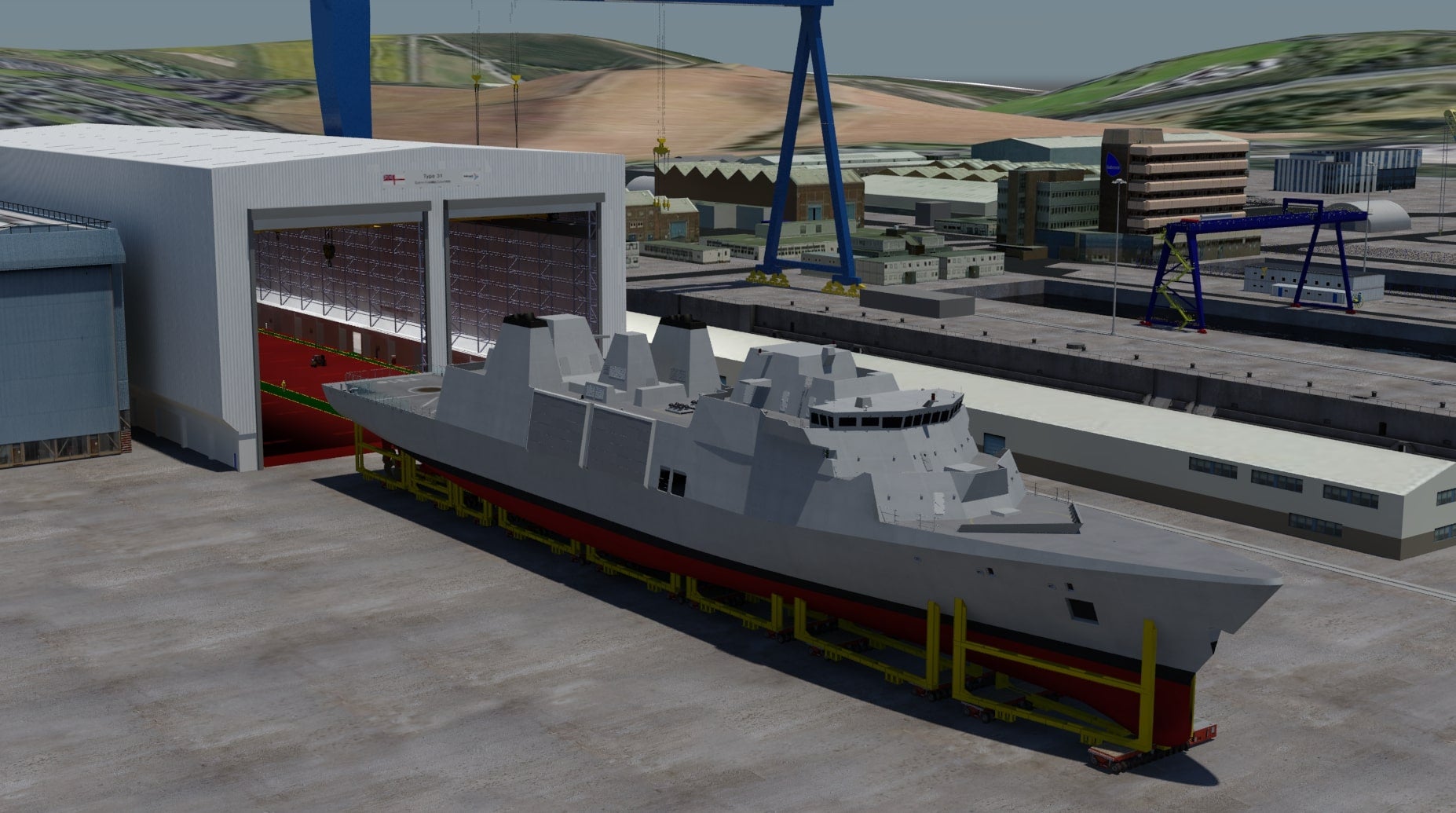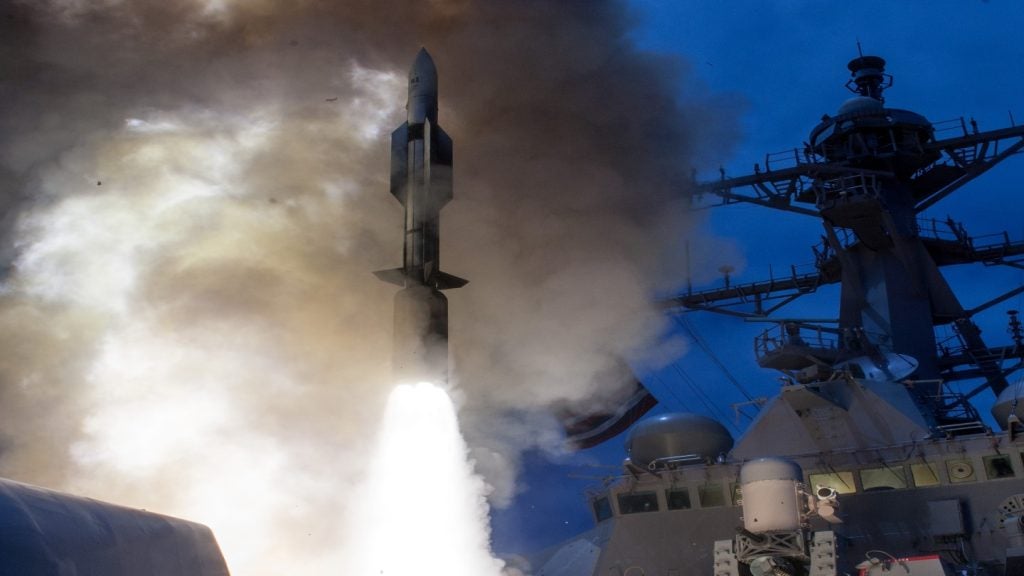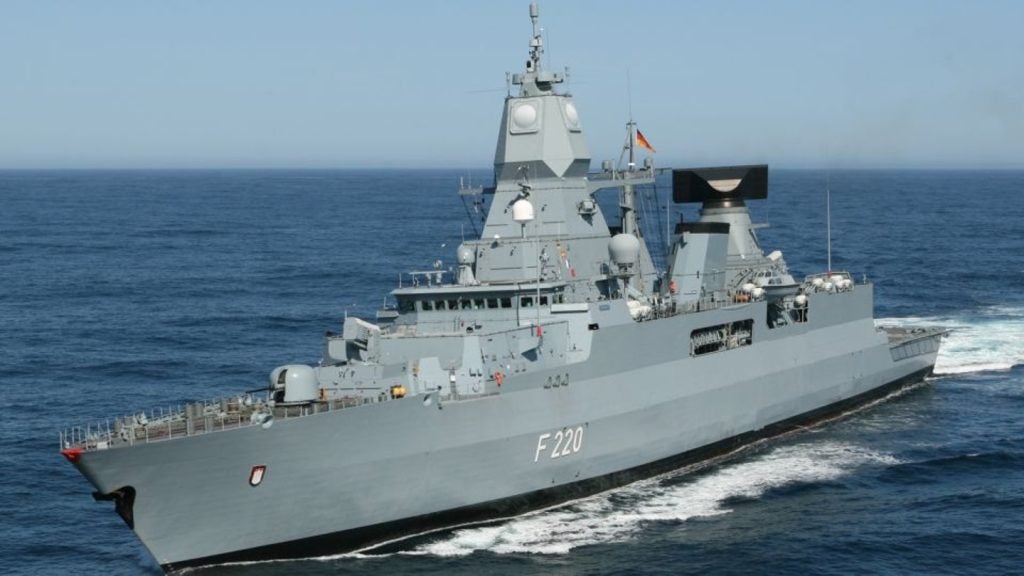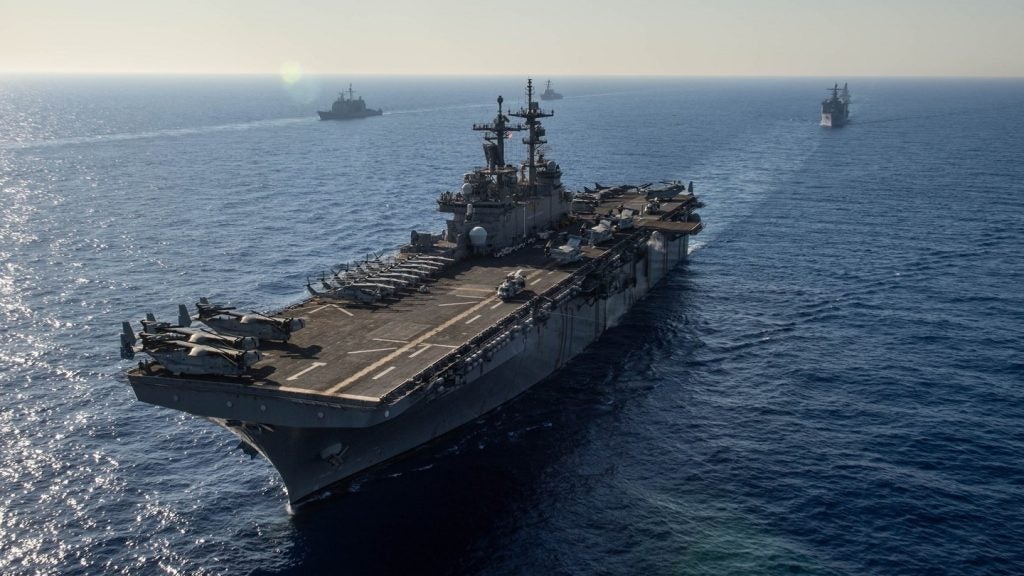
The document also revealed new details about a planned new Multi-Role Ocean Surveillance Ship for the Royal Navy and reaffirmed prior plans to develop a new class of Type 32 Frigates as well new Fleet Solid Support Ships.
The IR said the new Multi-Role Ocean Surveillance Ship would demonstrate the UK’s ‘more integrated approach in practice’ with the vessel being tasked with protecting critical national infrastructure at sea such as undersea cables and ‘improving our knowledge of the maritime environment.’
The document also said: “The Royal Navy’s Offshore Patrol Vessels, alongside the UK Border Force, will continue to support border surveillance, shipping safety, maritime environmental protection, fishery activity control, search and rescue operations and customs enforcement.”
The document also said spending would ‘deliver’ the UK’s plans for eight new Type 26 Frigates being built by BAE Systems and five new Type 31 Frigates that are to be built by Babcock.
In a statement, Babcock – makers of the Type 31 Frigate – told Naval Technology: “We welcome the themes of the Integrated Review, including the recognition of a shift to a more technology and innovation-based defence strategy.
“It’s also good to see that there is a clear aim to build on the UK’s relationships with key partners such as France, Australia, Canada and New Zealand; all countries in which Babcock has defence operations today.”
How well do you really know your competitors?
Access the most comprehensive Company Profiles on the market, powered by GlobalData. Save hours of research. Gain competitive edge.

Thank you!
Your download email will arrive shortly
Not ready to buy yet? Download a free sample
We are confident about the unique quality of our Company Profiles. However, we want you to make the most beneficial decision for your business, so we offer a free sample that you can download by submitting the below form
By GlobalDataThe IR also promised to implement a new defence and security industrial strategy – set to be aligned with the Government’s plans for growth. On this, the document reads: “It will constitute a more strategic approach to our core industrial base, from building ships in Scotland and armoured vehicles in Wales to manufacturing aircraft in England and satellites in Northern Ireland.”
Unions respond
The document also said the UK would move away from the 2012 ‘competition by default’ policy to prioritise ‘UK industrial capability’ where necessary for national security or operational reasons.
The move away from ‘competition by default’ was welcomed by unions GMB and the Confederation of Shipbuilding and Engineering Unions (CSEU), but they also called for more detail from the government.
CSEU general secretary Ian Waddell told Naval Technology: “While there has undoubtedly been positive news for the shipbuilding industry the devil is, as always, in the detail. We welcome the move away from ‘competition by default’ and the shift towards a more strategic approach to defence industrial strategy.”
This was echoed by GMB National Officer and Maritime Chair of the CSEU Ross Murdoch, who said: “While it is welcome that ministers have finally recognised that their ‘competition by default’ policy was fatally flawed, it should not have taken thousands of job losses while lucrative contracts flowed overseas to get to this point.”
In the Integrated Review, the government added that it would ‘reform and revitalise’ its approach to acquisition, exports and collaboration with international partners – specifically mentioning it would make greater use of government-to-government agreements.
Union figures also called for more clarity around the Fleet Solid Support Ship programme, Waddell adding: “There has been no recognition, for example, of the vital importance of the Future Solid Support ships contract which will act as a bridge to the next tranche of naval procurement, and which has the potential to position the UK as a centre for excellence in the design and build of auxiliary vessels and export them on the international market.
“Instead, the spectre of international competition continues to haunt this programme.”
Murdoch added that Ministers must prove they are serious when it comes to backing UK industry by bringing the Fleet Solid Support ship contract forward and “guaranteeing that it will be fulfilled through UK yards and the world-class UK supply chain.”







